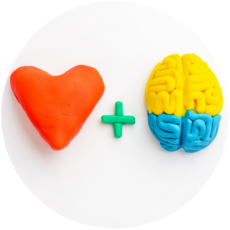
Social & Emotional Learning in Education
Social and Emotional Learning (SEL) skills are crucial in education because they help students succeed academically, socially, and emotionally. According to Utah State Board of Education Rule R277-100-2 (28), “Social Emotional Learning” or “SEL” is the process where students gain and use the knowledge, attitudes, and skills needed to:
- Recognize and control their emotions
- Set and accomplish constructive goals
- Understand and empathize with others
- Build and sustain healthy relationships
- Make thoughtful and responsible choices
- Advocate for themselves
Key Benefits of SEL in Education
Improves Academic Performance
-
-
- Focus and Motivation: When students can manage their emotions, they are better able to concentrate on their studies and stay motivated.
- Problem-Solving Skills: SEL enhances critical thinking and problem-solving abilities, which are essential for academic success.
-
Enhances Emotional Well-being
-
-
- Stress Management: Students learn to cope with stress and anxiety, leading to better mental health.
- Self-awareness: Understanding their own emotions helps students build confidence and self-esteem.
-
Promotes Positive Behavior
-
-
- Conflict Resolution: SEL teaches students how to resolve conflicts peacefully and reduces instances of bullying and violence.
- Empathy and Respect: Students develop empathy and respect for others, creating a more inclusive and supportive school environment.
-
Fosters Better Relationships
-
-
- Communication Skills: Students learn effective communication, leading to better relationships with peers and teachers.
- Teamwork: SEL encourages cooperation and teamwork, essential for group projects and collaborative learning.
-
Prepares for Future Success
-
-
- Life Skills: SEL provides students with essential life skills such as decision-making, responsibility, and perseverance.
- Career Readiness: These skills are valued in the workplace, making students better prepared for their future careers.
-
Reduces Behavioral Problems
-
-
- Positive Discipline: Students with strong SEL skills are less likely to engage in disruptive behavior and more likely to follow rules.
- Healthy Coping Mechanisms: They develop healthy ways to deal with challenges and setbacks.
-
Are you a caregiver looking for ways to implement SEL at home? Check out our previous article “SEL for All Ages”.






